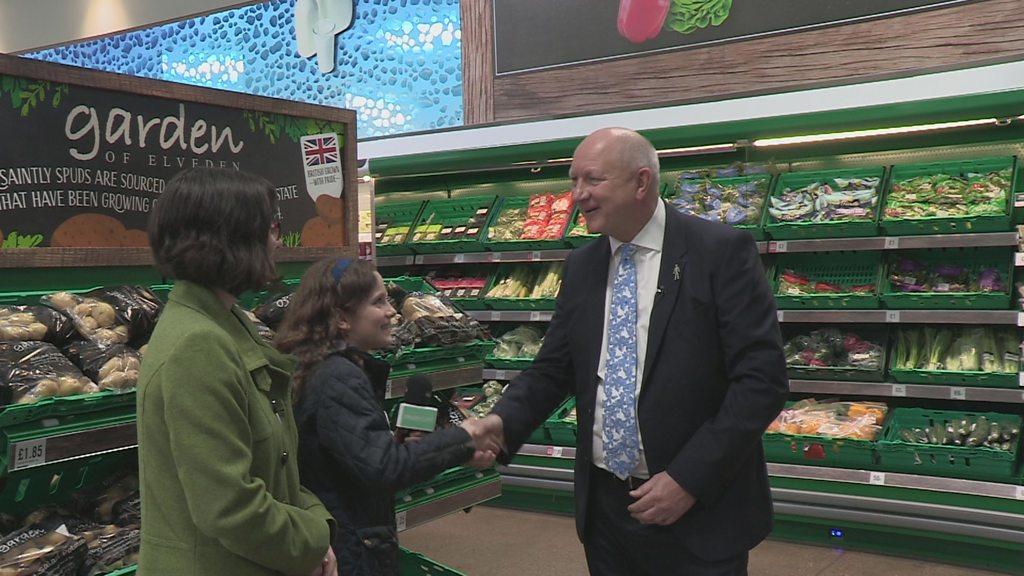Plastic: Seabirds found eating plastic after issue raised by Blue Planet II
- Published
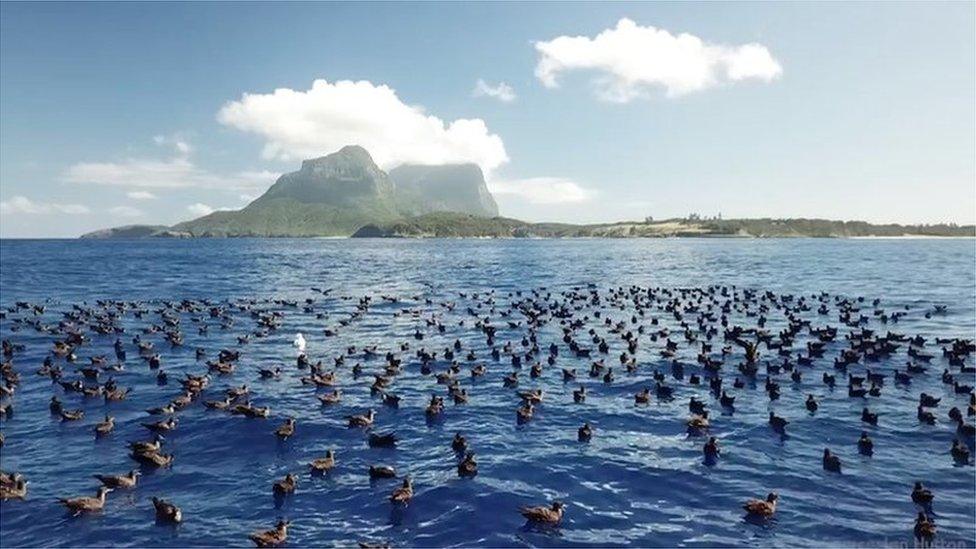
Experts visiting a remote island have found seabirds dying because they're too full of plastic to eat proper food.
The birds - flesh footed shearwaters - nest in burrows on Lord Howe Island, which is more than 600 kilometres off the east coast of Australia.
But when the parents go out hunting for food in the seas and bring back bits of fish and squid, scientists say they're also accidentally bringing back bits of plastic that are floating in the ocean.
The food gets digested and helps the baby birds grow, but the plastic just builds up in their stomachs leaving no room for food.
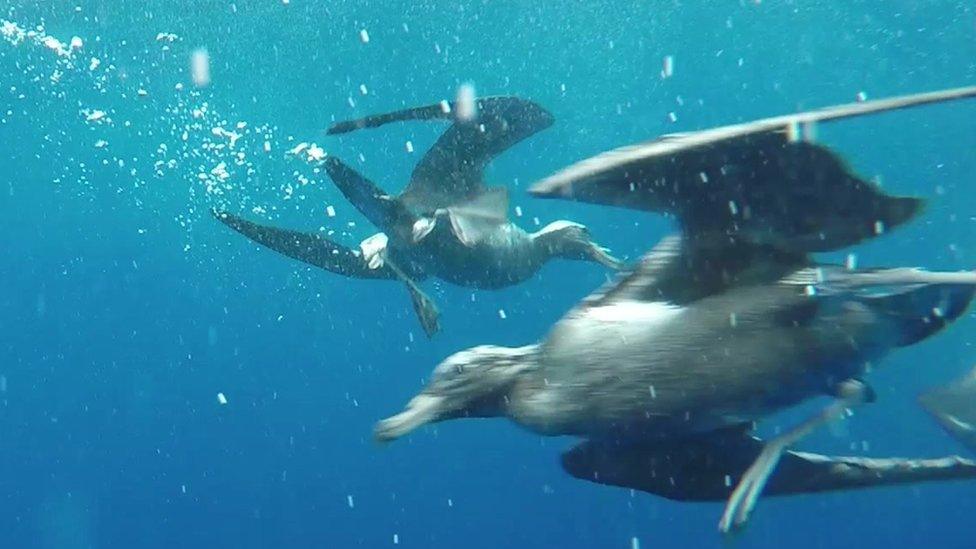
The seabirds dive underwater for food, but often eat pieces of plastic
Many of them sadly die but marine scientists are working on the island to save the birds by flushing out their stomachs, a treatment which they say doesn't harm the birds.
Meanwhile new website called Plastic Watch has been launched by the BBC to help people find out how they can best deal with plastics.


The team behind it say that they're hoping it will help people do more to protect the environment from plastic pollution.
There's been loads more people talking about plastic and the environment since the TV nature programme Blue Planet II shocked a lot of people by showing how much plastic was in the oceans.
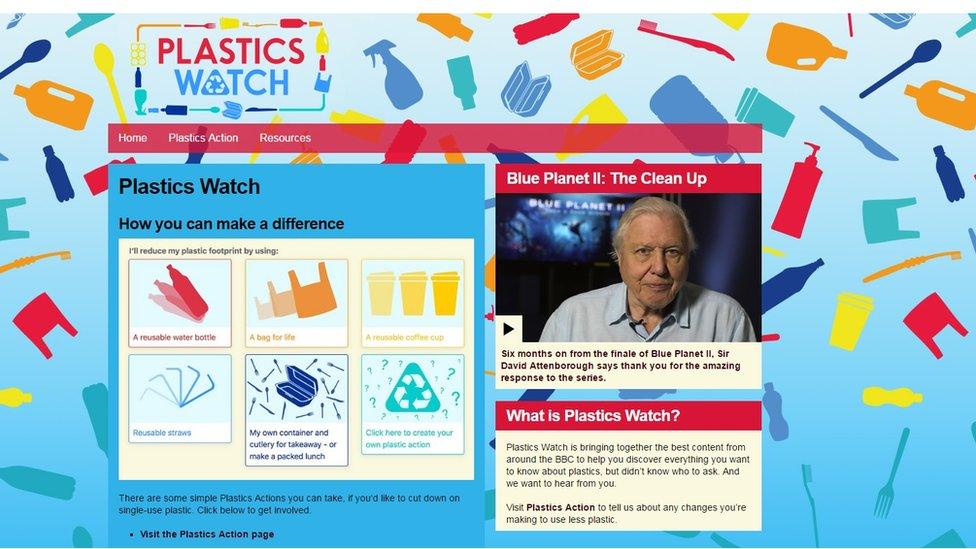
Sir David Attenborough says he's been "astonished" by the way people have responded to the issue following the wildlife series.
- Published24 May 2017
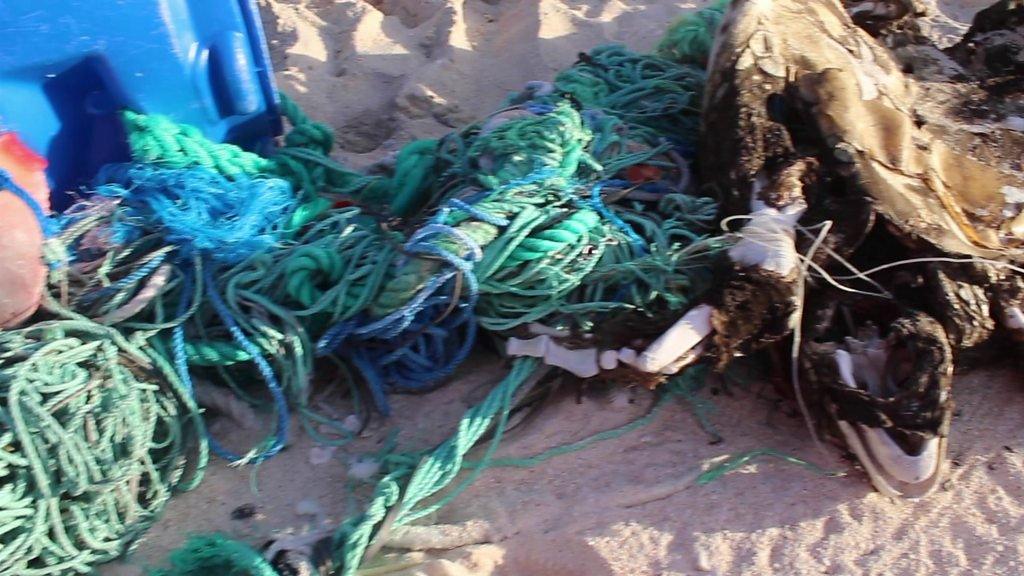
- Published17 March 2020
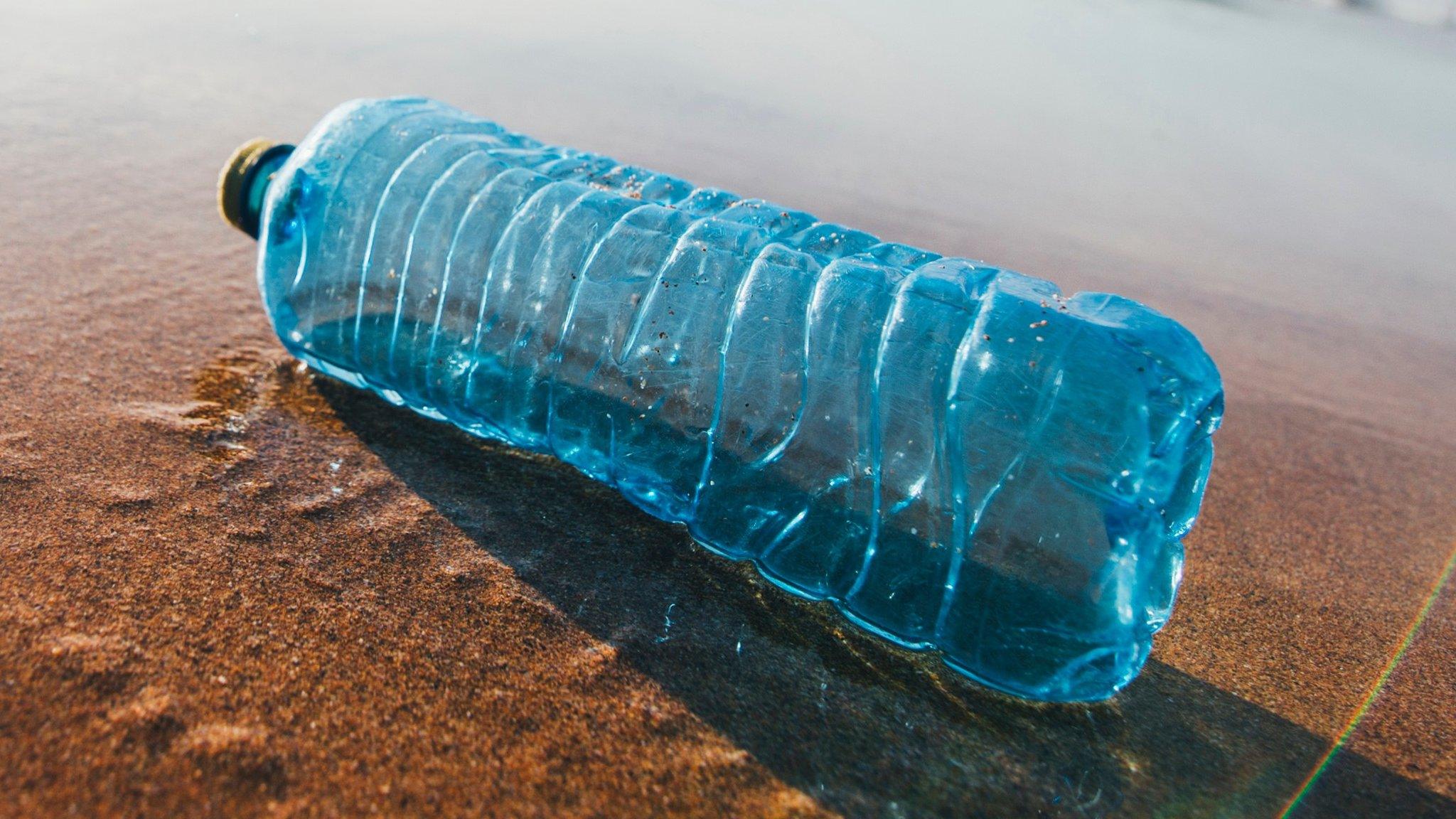
- Published31 January 2018
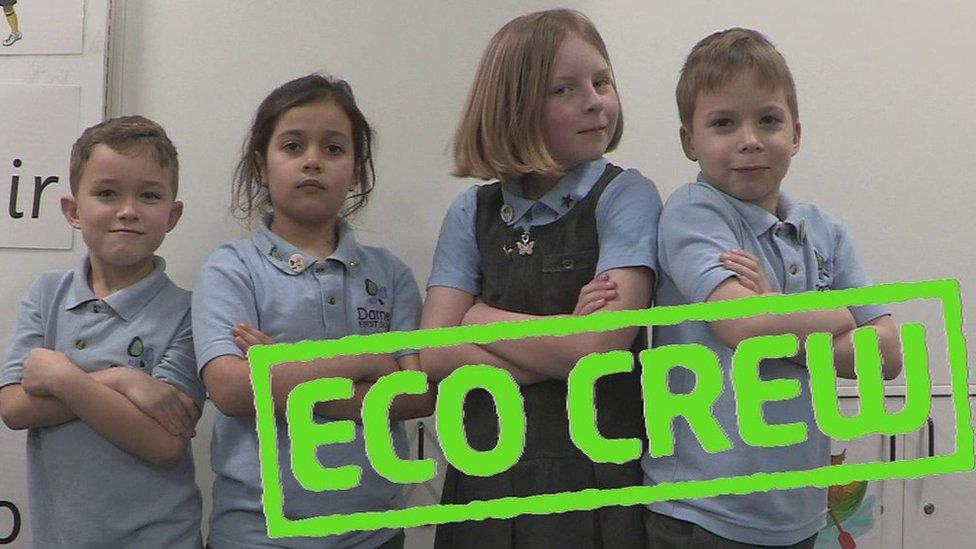
- Published2 February 2018
